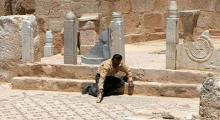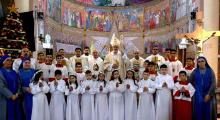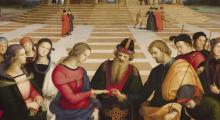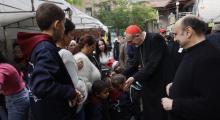Issued by the Catholic Center for Studies and Media - Jordan. Editor-in-chief Fr. Rif'at Bader - موقع أبونا abouna.org
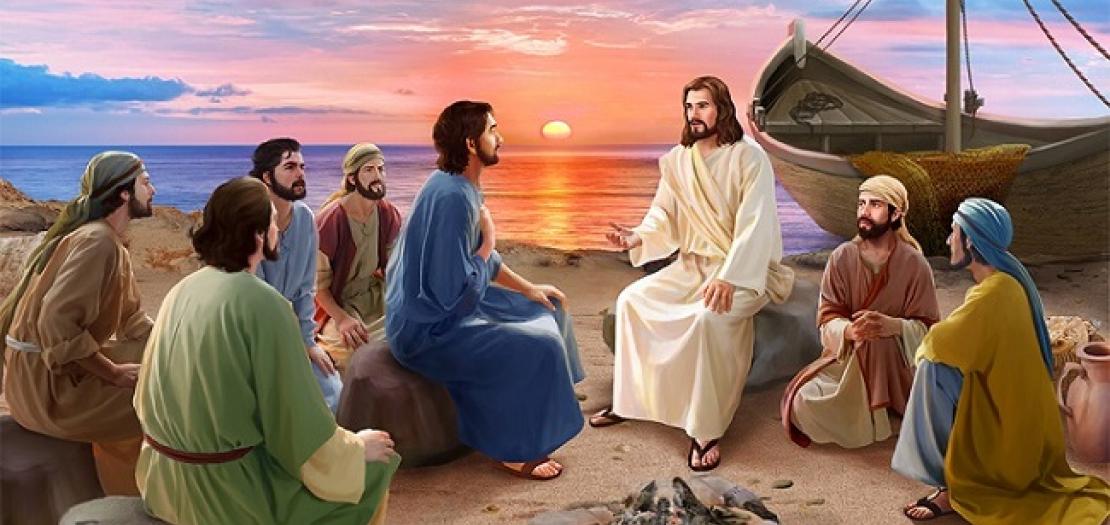
Following is the text of meditation by Cardinal Pierbattista Pizzaballa, Latin Patriarch of Jerusalem for the 25th Sunday of ordinary time, dated September 22, 2024:
The Gospel passage we heard last Sunday (Mk. 8:27-35) marks a turning point in Mark's narrative. Peter had indeed identified Jesus as the Messiah awaited by Israel. However, by rebuking Jesus, (Mark 8:32) Peter revealed that he, like others, expected a powerful and liberating Messiah—a strong figure who would deliver them from Roman rule.
In the second part of the Gospel, which starts with this episode, Jesus concentrates solely on teaching his disciples about his true identity and the nature of his mission. The miracles become less frequent, and he primarily spends time with his disciples as he journeys toward Jerusalem.
Thus, begins today's passage (Mark 9:30-37): Jesus and the disciples travel through Galilee, but he ensures that no one is aware of their presence (“he did not wish anyone to know about it”. (Mark 9:30) This is important because he needs time with the disciples to explain to them what they have yet to grasp—something that will be especially challenging for them to understand and accept: His death and resurrection.
For the object of Jesus' teaching is one, the Passover. That will be the way in which Jesus will take upon his shoulders the evil of men, of every man, and be for all healing and salvation; that will be his way of being the expected Messiah, the shepherd of God's people.
Jesus will openly address the subject three times, and each time the reaction of the disciples is that of those unwilling or unable to understand. Today we see the second of this attempt by Jesus, having seen the first just last Sunday, along with Peter's subsequent reaction.
Jesus, then, repeats the announcement of his passion and resurrection (“The Son of Man is to be handed over to men and they will kill him, and three days after his death he will rise.” (Mark 9:31) He never separates these two moments, death and resurrection, and this is the real, great teaching: there is no glory that does not pass through the giving of oneself, and no true self-giving that does not result in glory.
However, for the disciples these words are incomprehensible. (Mark 9:32) This isn’t due to complex language or difficult terms; rather, they are incomprehensible because they speak of an unsettling reality that conflicts with the beliefs and images they have been taught.
The disciples do not want to understand, and the sign is that even though they did not understand, they do not ask for explanations (“But they did not understand the saying, and they were afraid to question him." (Mark 9:32)
Instead of asking for explanations, the disciples talk about something else. It is a way of silencing the Word of the Cross, overshadowing it with other discussions, not giving it space, pushing it out of mind, and not letting it enter one's life. So many of our own words can serve a similar purpose—not to help us enter the mystery of Easter in our lives, but to keep us at a distance, distracting us and numbing us slightly.
What the disciples speak is exactly the opposite of the Word of the Cross. They speak the words of greatness, of power, of who among them is more important (“They had been discussing among themselves on the way who was the greatest” (Mark 9:34): they give voice to the deep desires that direct their lives.
Jesus, however, unlike the disciples, is not afraid to question them and is the one who asks for explanations of what they were talking about ("he asked them, ‘What were you arguing about on the way?’" (Mark 9:33)
The disciples' response to Jesus' question is silence (“But they remained silent”. (Mark 9:34): not having heard the Word of the cross, they do not have true and “correct” words, such as those we saw uttered by the healed man in the Gospel two Sundays ago. (Mark 7:35)
The heart of the disciples is not yet a healed heart: it vainly pursues dreams of greatness that have nothing to do with true glory.
Today's good news is that Jesus does not stop at our muteness or even our fear. To the disciples, who still cannot hear the Easter Word, Jesus shows a symbol evocative of what true greatness is.
This symbol is the embrace in which Jesus welcomes a child, (Mark 9:36) to say that true greatness is when we are able to welcome others as they are, becoming bread for every little hungry one.
+ Pierbattista



